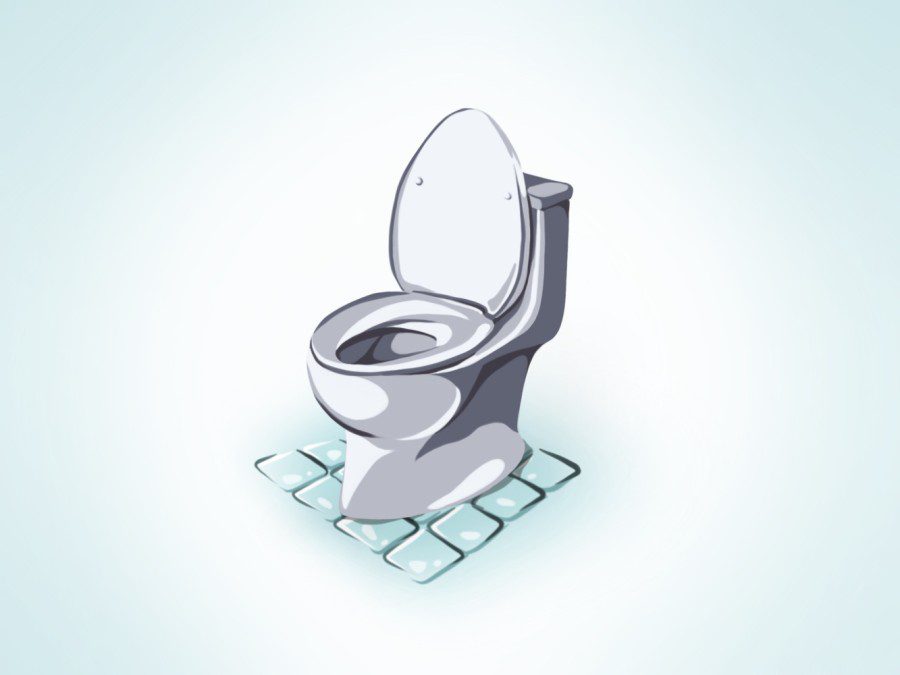Opinion: You need to stop using toilet paper to clean your butt
Despite its prevalence in the United States and on NYU’s campus, toilet paper is one of the worst restroom hygiene options. It’s time for NYU to offer toilet paper alternatives.
There are better options than toilet paper. (Illustration by Victoria Liu)
November 18, 2022
Allow me to paint a picture. You’ve just come back from a great 90-minute workout and you’re exhausted. Your clothes are soaked and your hair has grown stiff from the sweat. Are you looking forward to getting cleaned up, so you reach for some toilet paper and dry yourself off? Hopefully not. You probably get into the shower to wash the sweat and grime off of yourself, so I simply cannot understand or excuse using toilet paper to clean up after you use the toilet.
All toilet paper has to offer is multiple wipes with a dry surface that could — and does — lead to residual fecal matter that may cause bacteria to fester and secure yourself at best, a rash, and at worst, hemorrhoids. And even if you follow the front to back method, there is always the ever-prevailing threat of a UTI if the bacteria from the anus makes its way into the urethra.
Even the flushable wipes that you might use are not a good alternative. Often pre-moistened with a cleaning solution and made from non-woven fibers, the thicker material is prone to slower disintegration, increasing the risk of clogging the drain pipe and eventually replacing the septic tank.
And if you need any more of an incentive, know that using toilet paper is terrible for the environment. According to a report by the Natural Resources Defence Council, Proctor and Gamble, one of the largest producers of toilet paper in the United States, directly abuses what the NRDC considers “one of the most ecologically important forests in the world, the Canadian boreal forest.” Clearcutting in the boreal forests in Canada to quench the demand for toilet paper production is wiping out one of the largest and most important climate regulators in the world.
When I moved here from India, the switch from hand-held sprays to toilet paper was too much for me, and thus I have been forced to use whatever resources I have with me. I use a lota, traditionally a brass water container, though I use a one liter measuring cup from Bed Bath and Beyond. Hasan Minhaj agrees — lotas over toilet paper any day.
There is, of course, a glaring solution. We don’t have to settle for toilet paper or supposedly flushable wipes or lotas — NYU should consider installing built-in bidets in their toilets. Used all over Asia and Europe, the bidet allows users to wash off all fecal matter or urine and reach for places that toilet paper would not ordinarily have access to. A far more redeemable alternative to toilet paper, a bidet would protect us from over-wiping with dry, abrasive paper. As long as we clean the bidet often and pat the washed area dry after use with a toilet paper or a towel, bidets offer our butts a cleaner, greener and safer alternative.
Although I am grateful for the free toilet paper provided by NYU, I do not trust the dry, one-ply paper. You shouldn’t either. In the interest of keeping its students clean, reducing plumbing costs and minimizing our carbon footprint, NYU should consider making the switch from toilet paper to bidets.
WSN’s Opinion section strives to publish ideas worth discussing. The views presented in the Opinion section are solely the views of the writer.
Contact Aksha Mittapalli at [email protected].
























































































































































